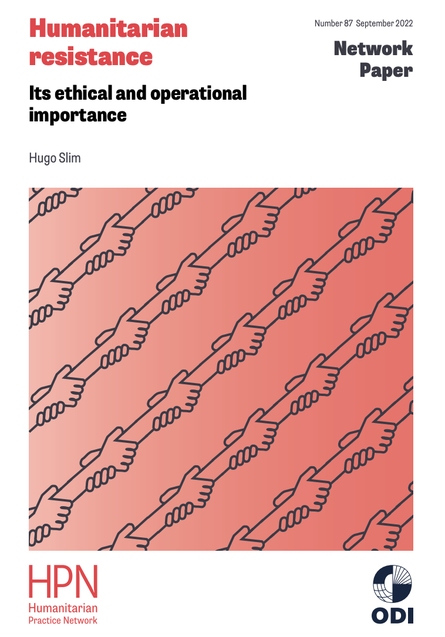
Russia’s invasion of Ukraine and the return of military dictatorship in Myanmar have reminded the world of the importance of humanitarian resistance. In both countries, civilian rescue and relief is being organised by resistance groups that are struggling for victory and humanity in equal measure, and so simultaneously taking sides for human life and human freedom. They are not neutral but they are humanitarian. In many situations, resistance humanitarians are reaching people faster and better than orthodox humanitarians from neutral international agencies.
This paper makes the case for humanitarian resistance as an essential, ethical and legal form of organised humanitarianism. I argue that the phrase is not an oxymoron. Politically committed humanitarian action makes good moral sense and is lawful under international human rights law (IHRL) and international humanitarian law (IHL). Like partisan fighters under the laws of war, partisan humanitarians should be more formally acknowledged in policy and law to protect the life-saving contribution they make. If not, international humanitarians are at risk of operating a double standard in the silence they keep about the value of resistance humanitarianism, and the noise they make about their own importance. In Ukraine, for example, internationals have struggled to match the reach and relevance of resistance humanitarianism, and have sought to colonise it rather than enable it.